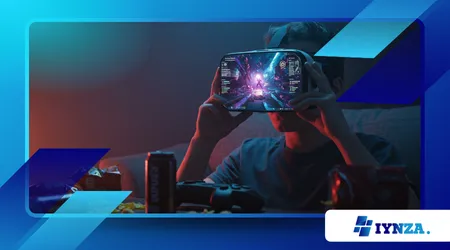Gaming Addiction: How to Find a Healthy Balance

Gaming Addiction is a problem.
Anúncios
Gaming can be thrilling, immersive, and even therapeutic. But when the hobby begins to interfere with your health, relationships, or daily responsibilities, it crosses a line.
In 2025, conversations around gaming addiction have become more nuanced. It’s no longer about demonizing games—it’s about recognizing when engagement turns into dependence and learning how to find a healthy balance.
This isn’t just about time spent. It’s about intention, control, and impact. Healthy gaming fits into your life—it doesn’t consume it. So how do you know when the scales have tipped?
And more importantly, how can you realign them without giving up something you love? This guide offers practical insight into gaming addiction and explores how players can take back control with clarity, compassion, and sustainable habits.
Understanding the Signs of Gaming Addiction
Gaming addiction doesn’t always look like endless hours in front of a screen. Sometimes, it’s more subtle.
It may start with skipping meals, neglecting responsibilities, or losing interest in activities outside the game. Over time, these behaviors can lead to sleep disruption, mood swings, and social isolation.
The World Health Organization officially recognized “gaming disorder” as a mental health condition in 2019, describing it as impaired control over gaming, prioritization of gaming over other interests, and continuation of gaming despite negative consequences.
By 2025, studies show that nearly 3% of regular gamers globally meet the criteria for gaming disorder. It’s not common, but it’s real—and addressing it starts with awareness.
Read also: How to Fix Common Gaming Issues: How-To Guide
The Psychology Behind Excessive Gaming
Why do games become addictive for some players? The answer lies in their design. Many games are structured to trigger the brain’s reward system through progression, achievement, and competition.
Levels, loot drops, daily missions, and ranked modes offer consistent dopamine hits. The feedback loop is instant—and for some, irresistible.
Gaming offers an escape, a sense of control, and even a community. These are powerful psychological rewards, especially for those facing stress, loneliness, or low self-esteem.
When real-life challenges become overwhelming, gaming can feel like a safer space. But when that escape becomes a replacement for real-life engagement, it becomes a problem.
Creating a Healthy Relationship with Games
The goal isn’t to quit gaming. It’s to create a relationship with it that supports your life, not replaces it. The first step is to assess why you play.
Are you playing to relax after work, connect with friends, or escape something stressful? Understanding your motivation helps you spot when gaming starts to fill roles it shouldn’t.
From there, build intentional boundaries. Schedule specific times for gaming and stick to them. Use tools like timers or app limits if needed.
Take regular breaks. Stretch. Hydrate. Move around. Integrate gaming into your life the same way you would any other hobby—with awareness and structure.
Two Examples of Healthy Shifts
Example 1: A university student who once played until 3 a.m. daily began using a gaming timer app and shifting play to weekends. Over time, grades improved, and sleep stabilized—without giving up their favorite MMO.
Example 2: A father of two replaced late-night ranked matches with shorter story-driven games that fit into his evening routine. He still games but now feels present with his family and energized at work.
These changes didn’t require quitting. They required choice.
When to Seek Support
It’s okay to ask for help. If you or someone you know is struggling to stop gaming despite clear consequences—missing work, damaging relationships, or experiencing mental health issues—it’s time to talk to a professional.
Cognitive behavioral therapy has shown strong results in addressing compulsive gaming patterns.
In one 2024 study, participants who completed a 10-week online CBT program reported a 48% reduction in gaming time and significant improvements in mood and focus. Therapy isn’t about blaming—it’s about building skills and restoring balance.
Recognizing Triggers and Patterns
Awareness is everything. Start tracking when and why you turn to games. Is it after conflict? During boredom? As a routine escape from stress? Mapping this helps you anticipate and redirect urges before they spiral.
Keep a journal. Write down how long you played, how you felt before and after, and whether you met your playtime goal. Over time, you’ll spot patterns.
You might notice, for example, that gaming spikes after tough days at work, or when you’ve had too much caffeine. These clues help you reclaim control.
One Analogy to Shift Your Mindset
Think of gaming like sugar. In moderation, it’s a treat. Too much, and it crowds out nutrition, disrupts energy, and affects mood.
The goal isn’t to avoid sugar completely—it’s to enjoy it without letting it become your main diet. Gaming works the same way. The more balanced the intake, the more satisfying the experience.
The Role of Community and Support Systems
Gaming doesn’t have to be isolating. When done in moderation and with intention, it can foster connection. But if your gaming habits are creating distance from friends, family, or even your own goals, lean on your support system.
Tell someone you trust what you’re working on. Set accountability goals. Invite people to spend time with you offline. You’re not weak for needing help—you’re wise for choosing to seek it.
A Question Worth Asking
If you stopped gaming tomorrow, what would you need to feel fulfilled? This question isn’t meant to scare you. It’s meant to uncover what gaming might be replacing.
When you identify what’s missing—whether it’s connection, purpose, or structure—you can begin to rebuild it in real life.
Conclusion
Gaming should enhance life, not replace it. Finding balance isn’t about restriction—it’s about freedom. When you game with intention, awareness, and care, you make room for everything else that matters. That’s not giving up—it’s leveling up.
Whether you’re navigating recovery or simply looking to improve your habits, the path to balance is possible. And it starts with one honest question: am I playing because I enjoy it—or because I need it?
FAQ
1. What are the warning signs of gaming addiction?
Neglecting responsibilities, disrupted sleep, social withdrawal, irritability when not gaming, and playing despite consequences.
2. Can I still game if I have a history of addiction?
Yes, but with clear boundaries and support. Some people may need a break or professional help to reestablish a healthy relationship.
3. How much gaming is too much?
It depends on the individual. If gaming affects your health, relationships, or goals, it’s likely time to reassess.
4. Are there tools to help limit gaming time?
Yes. Timer apps, screen time monitors, and digital wellbeing settings can help create structure and awareness.
5. Where can I find support for gaming addiction?
Mental health professionals, digital wellness groups, and online therapy programs offer targeted support for gaming-related challenges.
